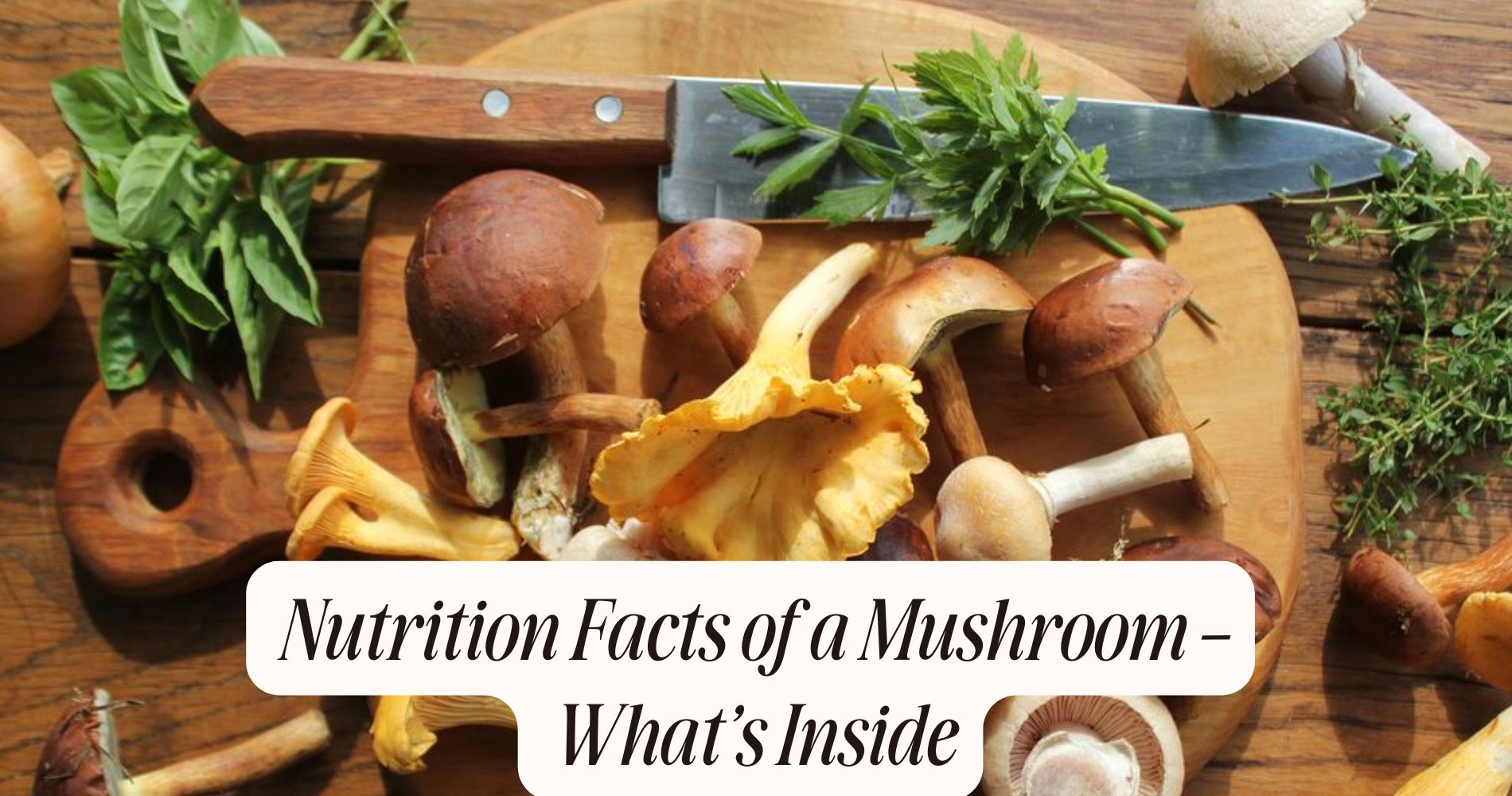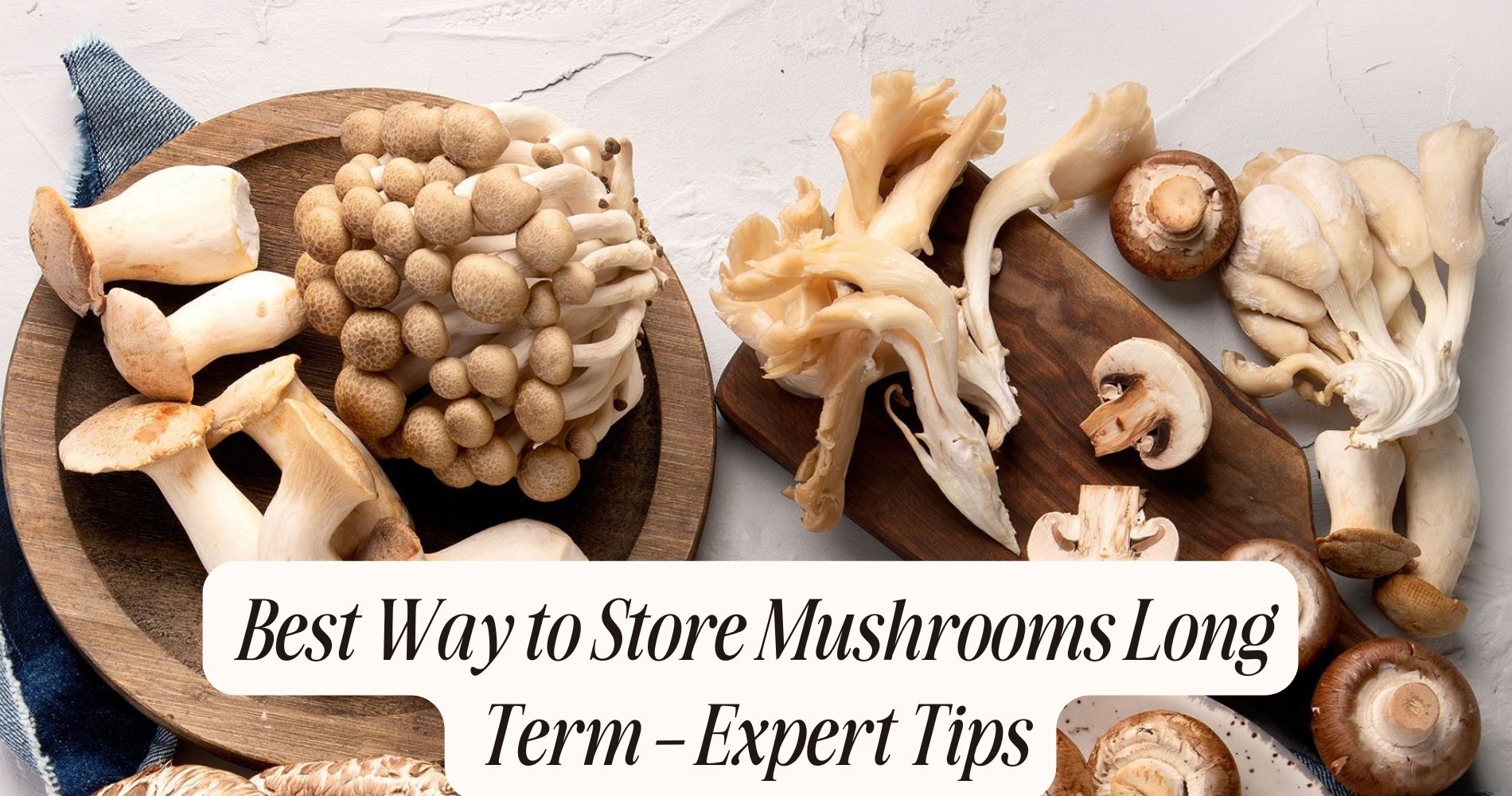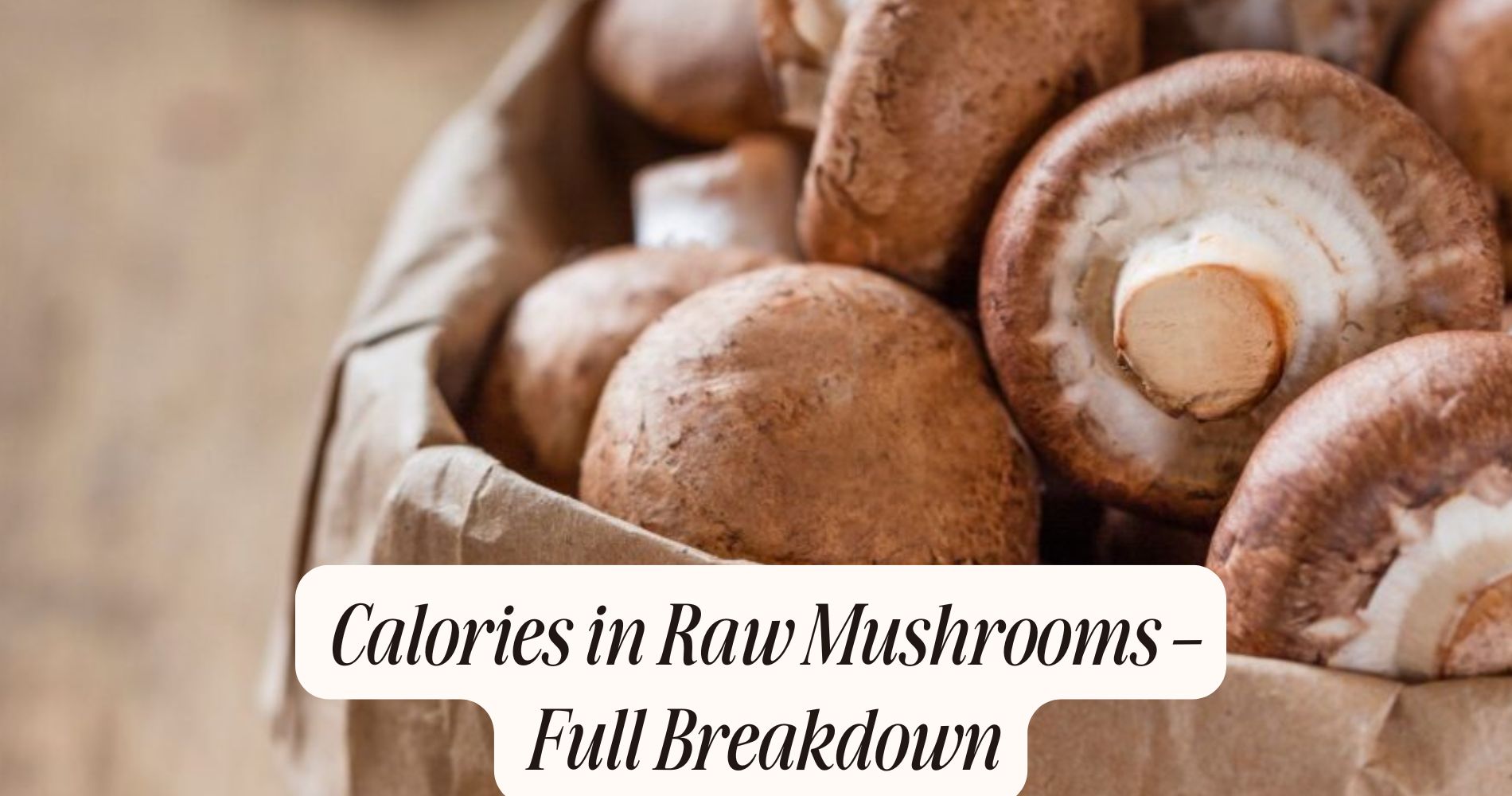
Nutrition Facts of a Mushroom – What’s Inside
When exploring the nutrition facts of a mushroom, you'll find that these fungi are impressively nutrient-dense for such a low-calorie food. A single cup provides just about 15 calories, along with roughly 2 grams of protein and carbs. They're rich in B vitamins, potassium, selenium, and powerful antioxidants like ergothioneine and glutathione. Mushrooms also offer dietary fiber for gut health and contain bioactive compounds that may enhance immune function. While they don’t provide vitamins A or C, their unique profile makes them a smart addition to any balanced diet. Curious about how mushrooms can support your overall health? Let’s take a closer look.
Macronutrient Profile: Calories, Protein, and Carbohydrates
Although mushrooms often appear light and delicate, they offer a surprisingly robust macronutrient profile for such a low-calorie food. You’ll find that a typical cup of raw mushrooms provides about 15 calories, making them a smart choice if you’re watching your energy intake.
They deliver around 2 grams of protein and 2 grams of carbohydrates per serving, with minimal fat. Different cooking methods—such as sautéing, grilling, or roasting—don’t considerably alter their macronutrient content, though added ingredients might.

This versatility enhances their culinary uses, letting you add them to stir-fries, salads, soups, and pasta dishes without overwhelming your meal with extra calories.
Essential Vitamins in Mushrooms
Curiously, what makes mushrooms stand out among vegetables is their impressive array of essential vitamins. You’ll find mushrooms are especially rich in B vitamins like riboflavin, niacin, and pantothenic acid, which support energy metabolism and brain function.
Mushrooms also provide vitamin D, but the amount depends on cultivation methods—those exposed to sunlight or UV light during growth contain markedly more.
Cooking techniques matter, too; while sautéing or grilling preserves most vitamins, boiling can cause some loss, particularly of water-soluble B vitamins.
It’s important to note that mushrooms aren’t significant sources of vitamins A or C, so you’ll want to balance your diet accordingly.
Mineral Content and Their Benefits
Several key minerals found in mushrooms contribute directly to your health. Mushrooms absorb soil minerals efficiently, making them a natural source of potassium, selenium, copper, and phosphorus.
Potassium helps regulate your blood pressure, while selenium supports immune function and thyroid health. Copper is vital for forming red blood cells, and phosphorus plays a role in bone strength and energy production.

Your body’s mineral absorption from mushrooms is generally high, as their cell walls contain compounds that aid bioavailability. However, the mineral content can vary depending on the mushroom species and the quality of the soil in which they grow.
Including a variety of mushrooms in your diet ensures you benefit from a broader spectrum of these essential minerals, supporting overall well-being.
Antioxidants and Unique Compounds
Alongside their impressive mineral profile, mushrooms stand out for their abundance of antioxidants and unique bioactive compounds. You’ll benefit from fungal antioxidants like ergothioneine and glutathione, both of which help combat oxidative stress and may reduce cellular damage.
Scientific studies highlight that these antioxidants are particularly stable and effective compared to those found in many fruits and vegetables. In addition, unique mushroom compounds such as beta-glucans and polyphenols contribute to their potential health-promoting effects.
Researchers have linked these compounds to anti-inflammatory and immune-supporting properties, yet it’s important to remember that more human studies are needed to confirm their long-term benefits. Including mushrooms in your diet gives you access to an array of these distinctive compounds, supporting your overall nutritional intake.
Dietary Fiber and Digestive Health
While mushrooms may not be as high in fiber as some vegetables, they still provide a meaningful source of dietary fiber that can support digestive health. You’ll find both soluble and insoluble fibers in mushrooms, which help regulate bowel movements and maintain a healthy gut environment.
Importantly, the fiber in mushrooms, such as beta-glucans, can undergo fermentation in your colon, producing beneficial short-chain fatty acids. These fermentation benefits include supporting the growth of helpful gut bacteria and potentially enhancing overall digestive function.

When considering culinary uses, incorporating mushrooms into soups, stir-fries, or salads is an easy way to boost your fiber intake without altering flavor profiles considerably. By eating mushrooms regularly, you’re taking a practical step to support digestive well-being through natural dietary choices.
Heart-Healthy Properties of Mushrooms
Curiously, what makes mushrooms stand out in a heart-healthy diet is their unique nutritional profile. You’ll benefit from their low saturated fat and cholesterol content, making them a smart choice for maintaining healthy blood pressure and cholesterol levels.
Mushrooms also supply potassium, which supports proper heart function, and contain antioxidants like ergothioneine that may reduce oxidative stress―a key factor in cardiovascular disease.

Emerging research suggests that compounds supporting the fungal immune system, such as beta-glucans, might also help regulate inflammation in your body, further supporting heart health.
Thanks to their culinary versatility, you can easily add mushrooms to a variety of dishes, from salads to stir-fries, without compromising flavor or texture.
While mushrooms aren’t a cure-all, they’re a valuable addition to a balanced, heart-conscious diet.
Experience Mushroom Power the Easy Way
Looking to enjoy all the nutrition facts of a mushroom without cooking or prep? Try SUPER MUSHROOM GUMMIES from Well Gummies. Each chew is packed with 10 powerful mushroom types to naturally boost focus, energy, and immune support—all in a tasty wild berry flavor. No jitters, no crash—just clean, balanced support for mind and body in a convenient, candy-like form.
Frequently Asked Questions
Are Mushrooms Safe to Eat Raw or Should They Be Cooked?
You can eat some mushrooms raw, but raw consumption may increase your risk of digestive upset or exposure to toxins. Cooking benefits include breaking down tough cell walls and reducing harmful compounds, making mushrooms safer and more digestible.
Can Mushrooms Cause Allergic Reactions in Some People?
Yes, you can experience mushroom allergies, though they're rare. Allergic reactions may include skin rashes, respiratory issues, or digestive discomfort. If you're concerned about mushroom allergies, consult an allergist before consuming mushrooms, especially for the first time.
How Should Mushrooms Be Stored to Maintain Freshness?
To maintain mushroom freshness, you should use refrigeration techniques—store them in a paper bag in your fridge. This preservation method prevents moisture buildup and spoilage. Don’t seal mushrooms in plastic; it can encourage mold and reduce shelf life.
Do Mushrooms Interact With Any Common Medications?
You should know that medication interactions with mushrooms are rare, but some varieties can affect drug absorption or enzyme activity. Always check with your healthcare provider before combining mushrooms with medications to guarantee safety and avoid unexpected interactions.
Are There Differences in Nutrition Among Mushroom Varieties?
You'll notice significant variety nutritional profiles among mushroom types. Wild versus cultivated mushrooms often differ in vitamins, minerals, and antioxidants. Evidence shows wild varieties may have higher nutrient levels, but both offer valuable nutrients, depending on species and growing conditions.
Conclusion
When you add mushrooms to your meals, you're getting a low-calorie food packed with vitamins, minerals, and antioxidants. They're a surprising source of protein, B vitamins, and essential minerals like selenium and potassium. Their dietary fiber supports digestion, while unique compounds may help protect your heart and cells from damage. While mushrooms shouldn’t replace other nutrient-dense foods, including them in your diet is a delicious, evidence-backed way to improve your overall nutrition.




